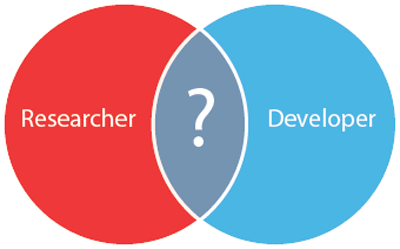The researcher programmer: a new species?
 Dirk Gorissen, a computer scientist from the University of Southampton, is interested in the problems facing researcher-developers. A lack of understanding of this role, and rigid academic career tracks, can make life difficult for the software-savvy researcher and research-savvy software developer. In his latest blog post, Dirk goes through the main points of a very interesting discussion which started at the Collaborations Workshop.
Dirk Gorissen, a computer scientist from the University of Southampton, is interested in the problems facing researcher-developers. A lack of understanding of this role, and rigid academic career tracks, can make life difficult for the software-savvy researcher and research-savvy software developer. In his latest blog post, Dirk goes through the main points of a very interesting discussion which started at the Collaborations Workshop.
Last week I attended the 2012 Collaborations Workshop at Queen’s College in Oxford. Organized by the Software Sustainability Institute its goal was to bring together software developers and researchers and relect upon how both groups interact and if anything needs to be changed.
I only found out about the two day workshop and the existence of the Software Sustainability Institute a few weeks before but immediately signed up. It was the first time I attended a conference so relevant to my own position and work. There were about 50 attendees, all in a similar position: PhD degree, working in academia or research lab, strong computational/software skills and working closely with researchers from at least one other scientific field (with a strong representation from biology/chemistry).
The conference went very smoothly, expertly managed and organized by Simon Hettrick and Neil Chue Hong. There were hardly any conventional talks, rather lightning talks and a whole series of break-out sessions which resulted in a lot of interesting discussions. One of the fundamental problems that kept coming up was the problem of defining ourselves as a group. What kind of species were we?
Read the full post on Dirk's blog page.
